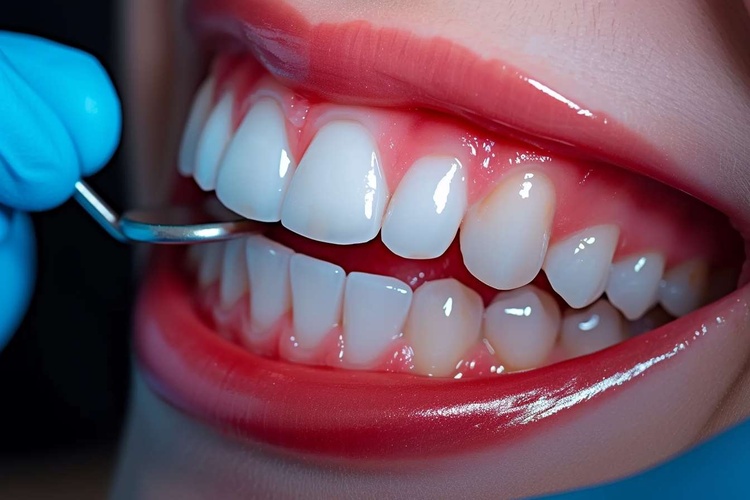Understanding Dentures: Complete Guide for Seniors
Dentures provide a practical solution for replacing missing teeth, helping millions of people restore their ability to eat, speak, and smile confidently. Whether you're considering your first set or looking to upgrade existing ones, understanding the different types available, maintenance requirements, and adjustment process is essential for making an informed decision that will improve your quality of life.

Modern dentures have evolved significantly from the uncomfortable, ill-fitting prosthetics of the past. Today’s dental technology offers various options designed to meet individual needs, comfort levels, and budgets. For seniors facing tooth loss due to age, disease, or injury, dentures represent an accessible path to restored oral function and renewed confidence in social situations.
Types of Dentures Available for Seniors and Their Benefits
Complete dentures replace all teeth in either the upper or lower jaw, while partial dentures fill gaps where some natural teeth remain. Conventional dentures are created after tooth extraction sites have healed, typically requiring 8-12 weeks. Immediate dentures can be placed right after extractions, though they may require more adjustments as healing progresses.
Implant-supported dentures offer superior stability by anchoring to titanium posts surgically placed in the jawbone. These provide better chewing efficiency and prevent the bone loss commonly associated with traditional dentures. Flexible partial dentures use thermoplastic materials instead of metal clasps, offering improved comfort and aesthetics for those with remaining natural teeth.
Factors to Consider When Choosing the Right Dentures
Your oral health status significantly influences denture selection. Adequate bone density supports conventional dentures better, while significant bone loss may necessitate implant-supported options. Lifestyle factors matter too - active individuals often benefit from the enhanced stability of implant-retained dentures.
Budget considerations play a crucial role in decision-making. While basic acrylic dentures cost less initially, premium materials like porcelain teeth and flexible bases may offer better longevity and comfort. Your dentist will evaluate your jaw structure, remaining teeth, and overall health to recommend the most suitable option.
Proper Cleaning and Maintenance Routines for Dentures
Daily cleaning prevents plaque buildup, staining, and odor development. Remove dentures after meals and rinse them under running water to eliminate food particles. Use a soft-bristled denture brush with specialized denture cleaner - never regular toothpaste, which can be too abrasive.
Soak dentures overnight in a denture-cleaning solution or plain water to maintain their shape and prevent drying. Handle them carefully over a folded towel or basin of water to prevent damage if dropped. Clean your mouth, gums, and any remaining teeth with a soft brush before reinserting dentures each morning.
Adjusting to New Dentures and Improving Comfort
The initial adjustment period typically lasts several weeks as your mouth adapts to the new prosthetics. Start with soft foods cut into small pieces, gradually introducing firmer textures as comfort improves. Practice speaking by reading aloud or having conversations with family members.
Sore spots are common initially but should improve as your mouth adjusts. If persistent discomfort occurs, schedule a follow-up appointment for adjustments. Using denture adhesive can improve stability during the learning period, but well-fitted dentures should eventually stay in place without it.
| Denture Type | Average Cost Range | Key Benefits |
|---|---|---|
| Basic Complete Dentures | $600-$1,500 per arch | Affordable, functional tooth replacement |
| Premium Complete Dentures | $1,500-$4,000 per arch | Better fit, natural appearance, quality materials |
| Partial Dentures | $700-$1,800 | Preserves remaining teeth, removable |
| Implant-Supported Dentures | $3,000-$30,000 | Superior stability, prevents bone loss |
| Flexible Partial Dentures | $1,200-$3,000 | Comfortable, aesthetic, metal-free |
Prices, rates, or cost estimates mentioned in this article are based on the latest available information but may change over time. Independent research is advised before making financial decisions.
The Role of Dental Visits in Long-Term Denture Care
Regular dental checkups remain essential even with complete dentures. Your dentist monitors oral tissue health, checks denture fit, and identifies potential problems early. Professional cleanings remove tartar buildup that home care might miss, while adjustments address changes in your mouth’s shape over time.
Annual evaluations help determine when dentures need relining, rebasing, or replacement. As facial muscles and bone structure change with age, dentures may become loose or cause discomfort. Professional maintenance extends denture life and ensures optimal oral health.
Dentures typically last 5-10 years with proper care, though individual experiences vary. Factors like bone remodeling, wear patterns, and maintenance quality influence longevity. Investing in regular professional care and following recommended home care routines maximizes your denture investment while maintaining oral health and comfort throughout the years.




